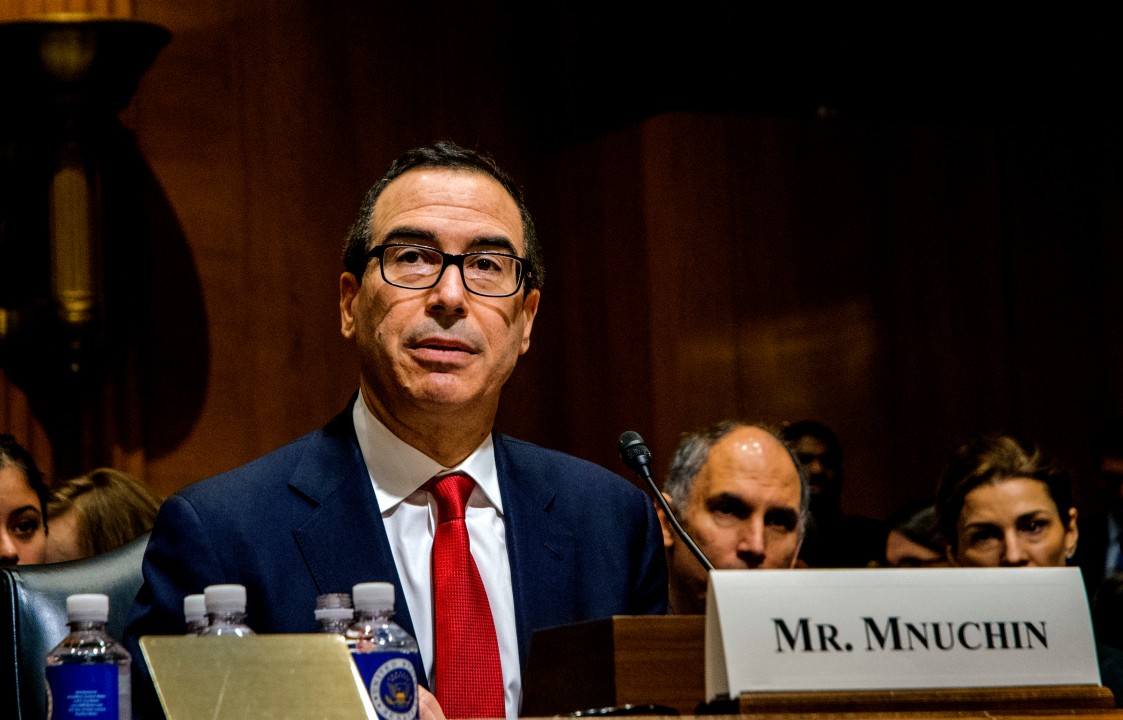For all the skeptics that have stood on the sidelines of the OECD digital tax talks and cast doubts about the chances of 128 countries agreeing to radically reform the international tax system in 2020, these past weeks have been schadenfreude moment.
And they can thank the great disruptor himself – U.S. President Donald Trump and his minion Steve Mnuchin at the U.S. Department of the Treasury – for confirming much of those doubts. And, of course, France and its finance minister Bruno Le Maire have played a supporting role.
A third factor roiling the talks is basic economic reality. In other words: what is the cost of this massive change?
The most important shock wave came from Mnuchin when he announced in a letter to the OECD that U.S. is backtracking. Basically, it is saying that the political reality is such that trying to get the required international tax treaty and domestic legislation changes approved to put the radical reforms into a law will be too big a mountain to climb.
Instead, Mnuchin said the U.S. now wants a kind of voluntary status – at least for Pillar 1 – that would allow multinational companies to use the scheme as a “safe harbour” to avoid national digital turnover taxes.
“Based on extensive consultations with taxpayers, we have concluded that there is broad support for greater tax certainty and administrability,” the letter states. But – and here is the stinger in the tail – “we have serious concerns regarding potential mandatory departures from arm’s-length transfer pricing and taxable nexus standards – longstanding pillars of the international tax system upon which U.S. taxpayers rely.”
So how to bridge the gap? Mnuchin: “we believe that taxpayers concerns could be addressed and the goals of Pillar 1 could be substantially achieved by making Pillar I a safe harbour regime.”
For anybody that has been following the OECD talks closely it is not too difficult to discern various reasons for the sudden U.S. pivot. One stems from tax advisers, including many from the Big Four, who have been consistently warning about the dangers of shifting away from standard transfer pricing procedures.
And then there is the decision by France and other EU countries, including Austria, Italy, Spain and others, to move ahead with national digital turnover taxes aimed at companies such as Facebook, Google, Apple and Amazon.
Of course, the big question is whether or not the Mnuchin letter is an irreversible pivot, a hard-nosed negotiating tactic or a bluff. As the U.S. has been, by all accounts, a constructive and sometimes leading force in the OECD digital tax reform negotiations – provided, of course, they that do not ring-fence large U.S. digital companies – the French turnover tax adoption infuriated Trump and Mnuchin. They have made it clear that they expect a good faith cease fire as a quid pro quo at least until the OECD tax talks conclude..
Amid this turmoil, there is another shadow growing over the OECD talks: the economic impact of plans such as profit reallocation in Pillar 1 and a minimum corporate tax rate in Pillar 2. Governments, especially those in the developing world that make up the OECD Inclusive Framework, as well as companies and tax advisers all want numbers. Moreover they want to know who will be the winners and losers in a radical international tax reform?
The OECD was supposed to publish this info in November. However it has been postponed until 2020. Considering the complexity of the proposals and multiple unresolved issues, the decision to push back the economic impact analysis should have been expected. Nevertheless it was just one of several factors that have the short-selling skeptics saying “I told you so.”

